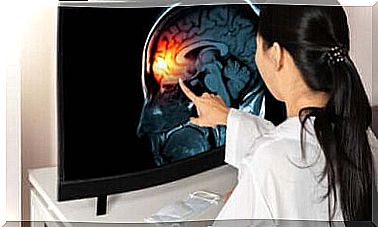6 Signs Of Affective Deprivation In Children
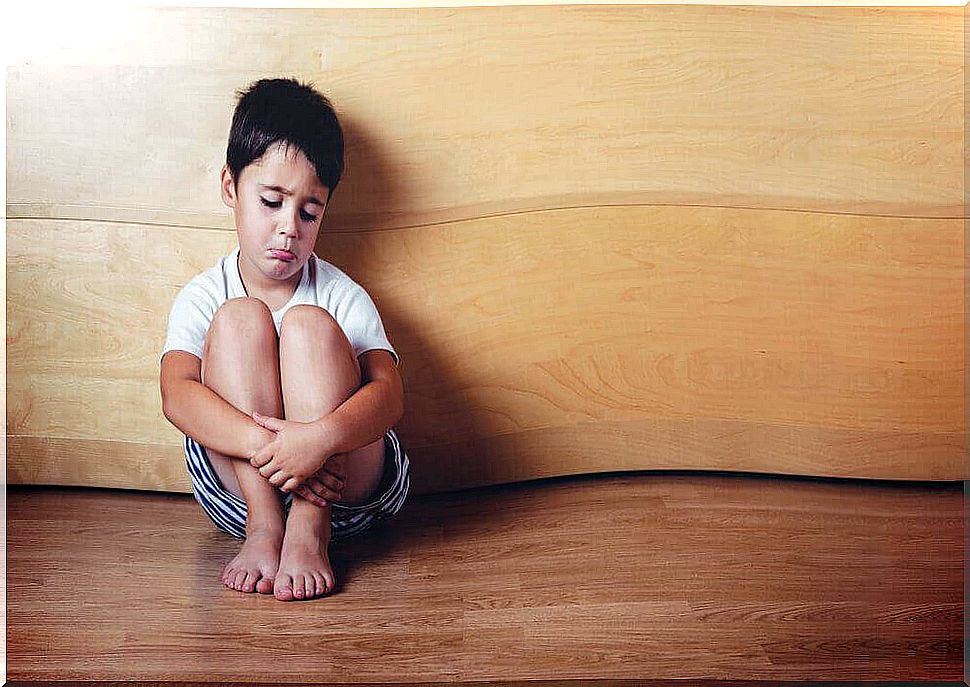
Kisses, hugs, caresses and advice are signs of love that parents must show their children to prevent affective deprivation. Overall, showing love to children will promote healthy development psychologically.
There is nothing more rewarding than a parent showing love, affection and understanding for their children. This will allow them to grow up in a healthy environment and develop habits that mimic what they learned at home.
However , many children lack love. This is either because of their family, or their immediate surroundings. When this happens, the consequences of affective deprivation in children are shown, which directly affects their behavior.
What are the signs of affective deprivation in children?
In childhood , children demand love from the people closest to them, in order for them to feel loved and protected. However, as the child grows, the parents tend to show less signs of love.
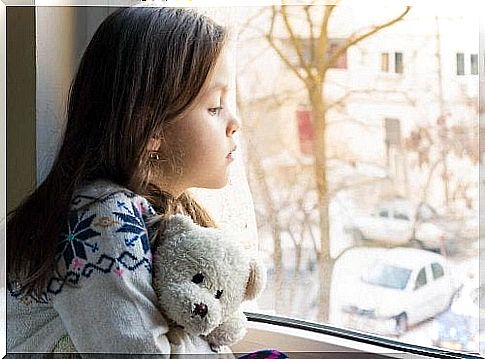
Sometimes long working hours and the hectic modern lifestyle cause adults to forget some of their family obligations. This includes showing their children love by reminding them how important they are.
Lack of love makes children feel lonely or abandoned. It also weakens communication between parents and children and can have consequences for their self-esteem.
To find out if your child needs you to show him or her more affection, you should be aware of the following issues. The:
- Is a “restless child” and has problems when interacting with other people.
- Are always defensive and on guard for what is happening around them.
- Suffers from childhood stress.
- Has a weak immune system due to high stress levels.
1. Disobedience
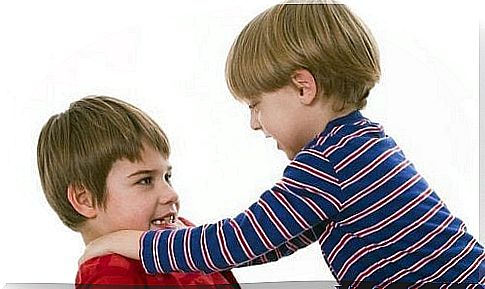
From emotional deprivation in children arises the need for attention. To be the center of attention, children tend to resist parental orders and to display inappropriate behavior, such as outbursts of anger and crying in public places.
Children who want love and attention from their parents often make “drama”, and if they do not achieve their goal, they increase the intensity and frequency. Typical signs of disobedience in children are:
- Exhausted laughter.
- Aggressiveness.
- Rage.
- Impulsivity.
- Sudden mood swings.
Let’s take a closer look at some of the symptoms of affective deprivation:
2. Aggressiveness

When children are aggressive, it is best to listen to them and give meaning to what they say. That way, they feel valued and will have enough confidence to say what they are worried about.
3. Uncertainty

Due to the emotional vacuum and lack of love, children often feel unprotected. This makes them afraid when they interact with other people.
Since they do not feel safe and constantly fear for their physical well-being, they are always defensive and very aware of what is happening in their environment. Therefore, mistrust is a clear sign that something is not going well.
4. Fear

Affective deficiencies in children who are not treated by a specialist can generate a feeling of emptiness and mistrust. Unfortunately, this will be present in the child’s relationship when they grow up unless it is taken care of properly.
Fear of abandonment arises in the little ones when they do not get the love they need from their parents and relatives. This pattern is difficult to leave behind.
It is usually necessary to take the child to a family psychologist or therapist. This will help them overcome their fears and strengthen the relationship between parents and children.
5. Low academic performance
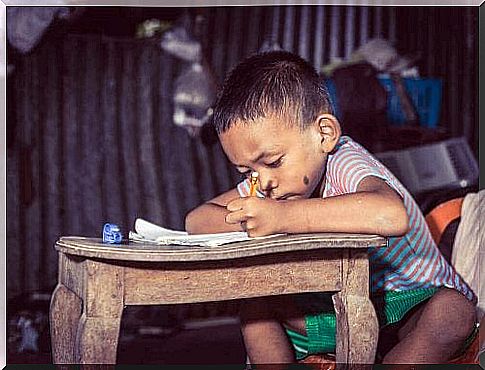
Lack of attention and love in children can result in learning disabilities and lack of motivation when doing homework. According to several psychologists, children who have emotional deprivation have language problems and poor academic performance.
It usually takes longer for them than other children to develop language, and they have few social skills. They censor their emotions and usually avoid any kind of love with those around them.
6. Dependence on electronic devices
Some parents choose to let the “digital nanny” take care of their children. This tendency to let children be distracted by electronic devices or watching television, causes an impersonal way of raising children.
Unfortunately, the little ones are often trapped in a technological bubble that sets aside human interaction.

Conclusion: affective deprivation
Lack of love in children makes them feel a great fear of losing loved ones . Unfortunately, this results in the child always being alert to what is happening around him or her.
It is necessary to remember that children require that you show them affection and attention at all times. It is essential for shaping their personality and for promoting brain development.
Lack of devotion can lead to an insecure personality, which is characterized by emotional immaturity, selfishness and identity problems. When children grow up in an environment without love, they have difficulty maintaining stable interpersonal relationships and often have major value conflicts.

